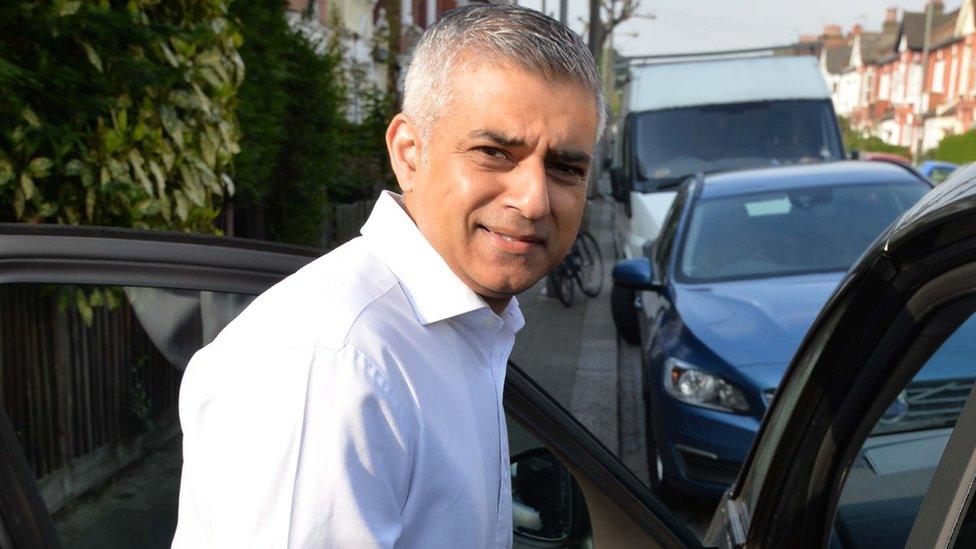Sadiq Khan's first 12 months as London's mayor
- Published
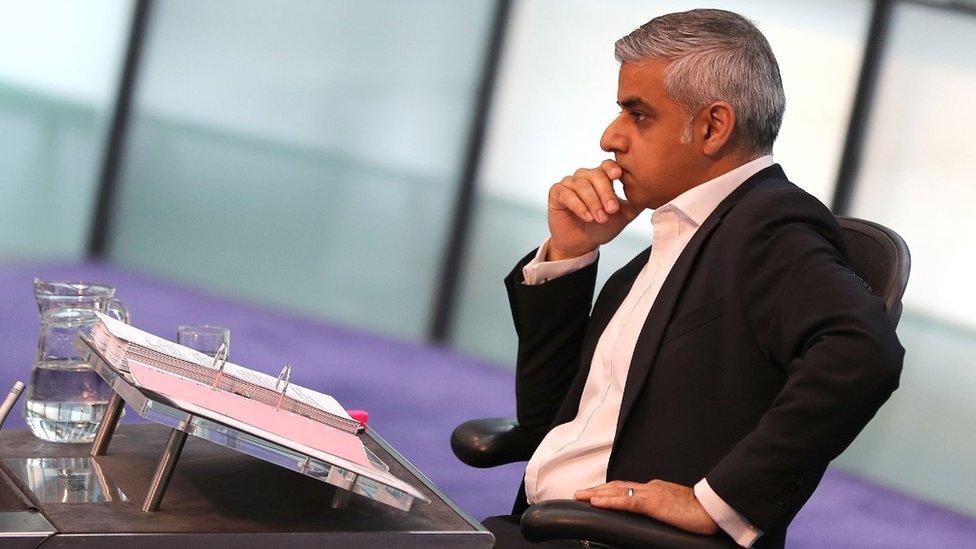
Sadiq Khan became London's first Muslim mayor
Sadiq Khan's win last year was the biggest of any London mayor to date and the greatest personal mandate of any politician in British history.
More than 1.3m Londoners voted for him - that's almost 57% of those voting - and he quit as Tooting MP straight away to become in his words a "full-time mayor".
Weeks later events overshadowed his win as the EU referendum result went against the wishes of almost 60% of Londoners and Mr Khan became a cheerleader for an "open" London.
And in March, he was faced with the news all London mayors dread, yet expect - a terrorist attack in the capital.
London Mayor Sadiq Khan heads to first day in office
A year on and Sadiq Khan remains a popular figure in the capital. A YouGov poll commissioned by the Mile End Institute at Queen Mary University in March found that 58% of those surveyed thought he was doing good job.
And like Ken and Boris before him, Sadiq has become known by his first name alone in what is now something of a tradition for London mayors.
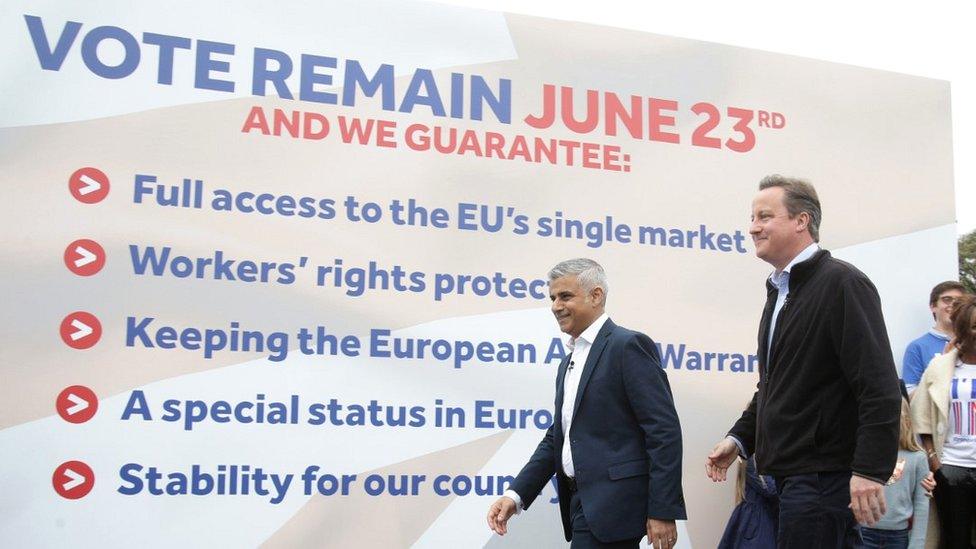
Mr Khan campaigned with David Cameron for the UK to stay in the EU
When it comes to leadership style though, his approach has not been nearly as flamboyant as that of his predecessors.
According to Professor Tony Travers of the London School of Economics (LSE): "From the beginning [Sadiq] wanted to run City Hall in an understated, cautious, non-flashy way.
"Sadiq is much more conventional than previous mayors and operates the City Hall machine like an ex-minister would approach government."
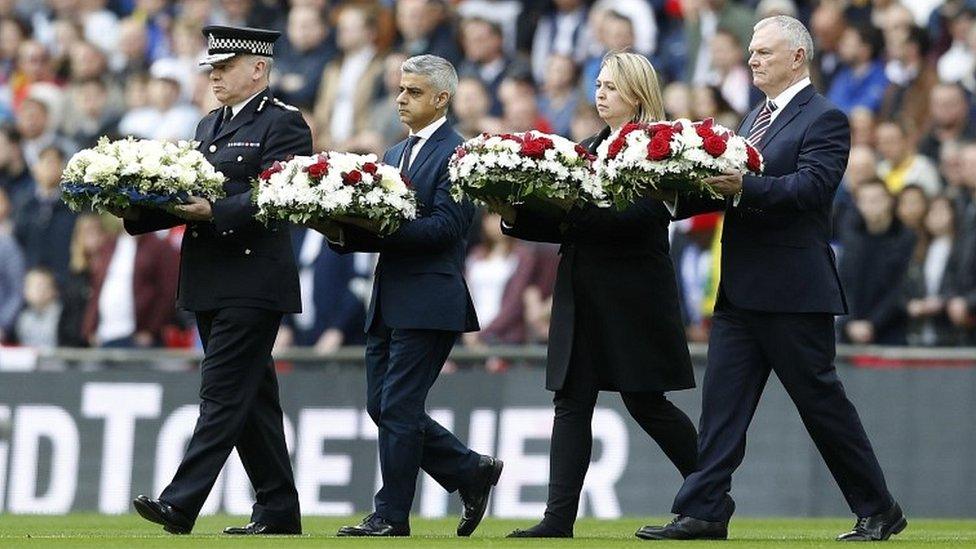
Wreaths were laid before an England match in tribute to the Westminster terror attack victims
Mr Khan is an ex minister; he served as a junior transport minister in Gordon Brown's government.
On entering City Hall he presented himself as a mayor who wanted to get things done, particularly in the area of transport where he has already ticked several policy pledges off his list:
The one-hour Hopper bus fare? Tick
The Night tube? Tick (although Boris Johnson did set the ball rolling on that one)
The Fares Freeze? Tick-ish (Sadiq froze single fares, not travelcards - which led some opponents to accuse him of not fulfilling his fares freeze pledge)
Martin Hoscik of the website MayorWatch believes the Hopper "scored an early win".
"It is already transforming how many passengers use the bus network and, taken alongside his fares freeze, it is making public transport more affordable after years of fare hikes under Boris Johnson," he said.
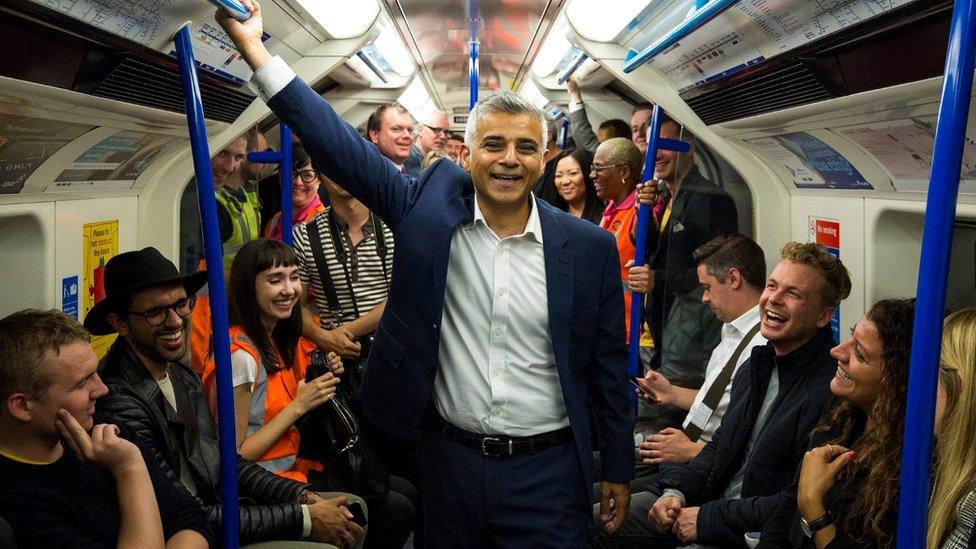
The mayor travelled on the first Night Tube on the Victoria line in August
The environment has been another area where the new mayor has focused his energies, with plans already in place to start charging the most polluting cars extra to travel in central London.
He has also been a fan of holding reviews into everything, from London's terror readiness and the impact of future financial devolution, to the Garden Bridge project (which has now been all but mothballed).
Mr Khan has also spent much of his first year lobbying government on issues affecting Londoners, from the fate of EU migrants in London post-Brexit, to pushing for control of suburban rail lines and trying to make sure Crossrail 2 gets built.
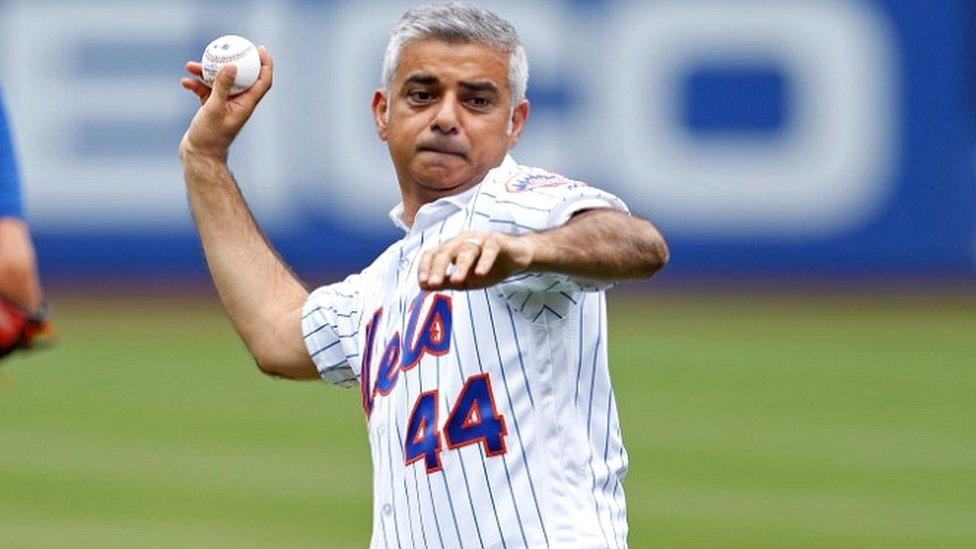
"London Is Open" has been a familiar phrase for Sadiq Khan
The government has given him no assurances on any of those issues yet, which presents a problem according to Martin Hoscik.
"There are times when calls for ministerial and government action risk casting him as a powerless opposition spokesman and not, as he is, an executive office holder with great power of his own," Mr Hoscik said.
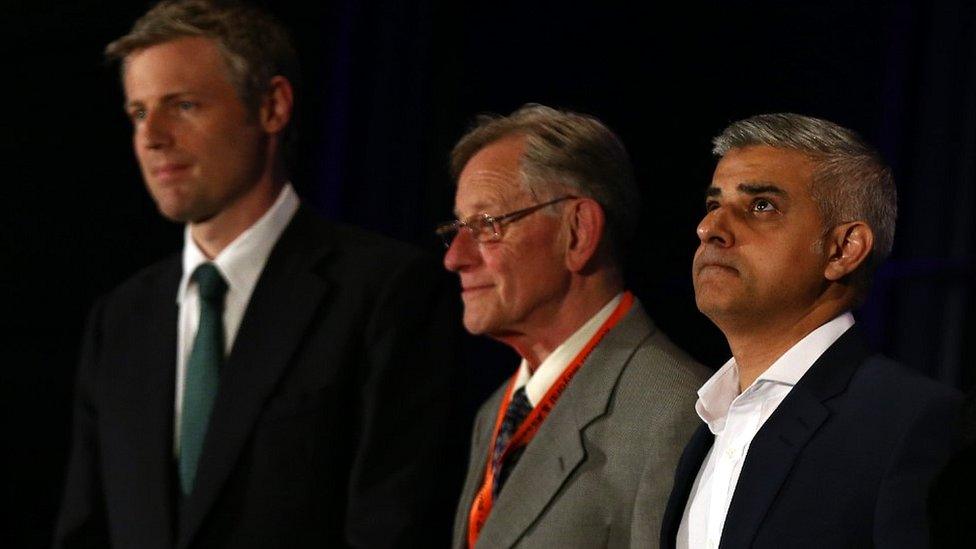
Mr Khan defeated Zac Goldsmith by 1,310,143 votes to 994,614
Housing is an issue the mayor of London does have responsibility over - more so now that the government has given him the task of building of 90,000 new affordable homes by 2021.
He has made some headway with his Homes for Londoners team and last week - just in time for his anniversary in power - he delivered the first 76 of his long promised London Living Rent homes, designed to help middle income renters save for a deposit.
Prof Travers said that under Mr Khan there had been "a change in emphasis towards affordability, but the impact can only be judged a year from now".
So it is too early to say how the new mayor of London has done on housing, but this is one nut he will need to crack if he wants his mayoralty to be viewed as a success.
- Published7 May 2016
